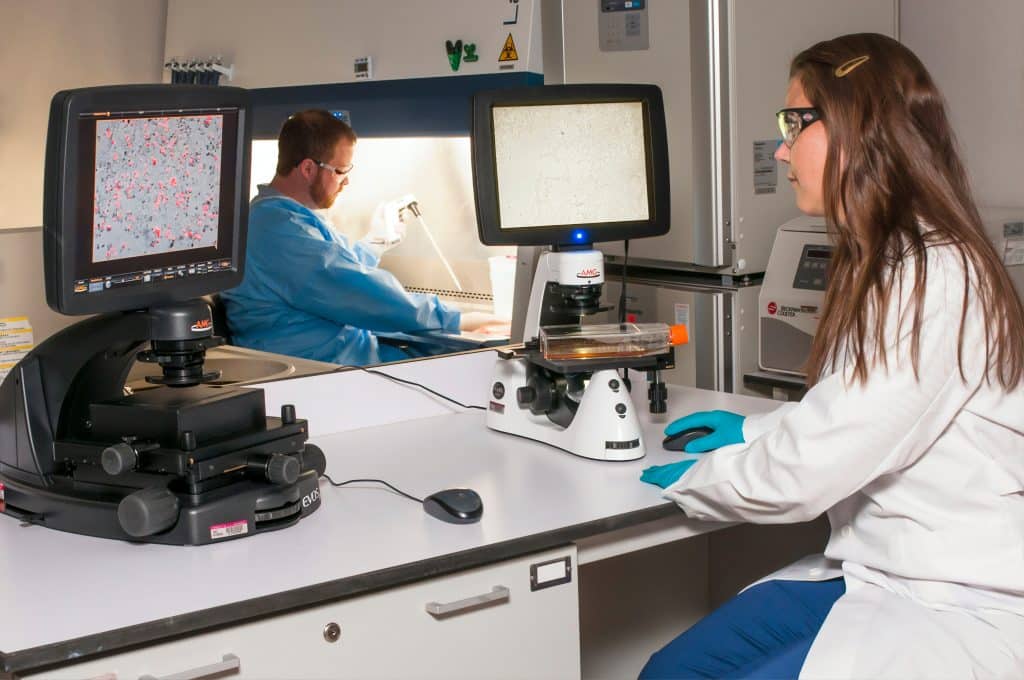Postbaccalaureate Premedical Program – Overview
Postbaccalaureate premedical programs help students to become competitive candidates for admission to medical school.
In addition, it allows the students who have already earned an undergraduate degree, take the prerequisite courses designed specifically to support the transition to a medical school.
The postbaccalaureate premedical program addresses various needs such as gaining clinical and research experience, record enhancement, Medical College Admission Test (MCAT) exam prep, or career change.
The length of these programs is usually one to two years, where a master’s degree or a certificate of completion may be awarded.
Also, some programs award graduate credit while others award undergraduate credit. Therefore, it is important to consider these distinctions and choose the best post bacc that counts for undergrad credit.
In addition, it can help boost both undergrad grades and science GPA – a crucial component of a medical school application.

Postbaccalaureate Premedical Program – Introduction
Postbaccalaureate Premedical Program – Introduction
A premedical postbaccalaureate program help improve applicants’ medical school readiness and demonstrate their commitment to admissions committees.
A premed considering postbaccalaureate programs fall into one or more of the following categories:
- Already have a non-science bachelor’s degree and need to complete the medical school prerequisites
- Completed all the prerequisite classes; however, GPA is weak
- Need more research or clinical experience
- Want to strengthen application before reapplying to medical school
Postbaccalaureate Premedical Program – Types
It is a good idea to speak to the admissions offices at the medical schools or pre-health advisor or regarding a postbaccalaureate program that would enhance your application.
It is recommended to seek a program that addresses your concerns. For more details, search in the AAMC’s Postbaccalaureate Premedical Programs database. Here are the types of Postbaccalaureate Premedical Program.
1. Career Changers
Those who have not completed pre-med courses and have decided to become doctors after undergrad can apply for career changer programs. These post bacc programs are designed to catch up on medical school prerequisites through MCAT support and advise on the medical school application process.
2. Academic Record Enhancement
The premed undergrad students who have completed almost all necessary prerequisites, but have low grades, low cumulative or science GPA, poor MCAT scores, etc., apply for academic record enhancement programs.
It helps raise students’ stats and might offer an extracurricular medical experience that boosts student resumes and MCAT and application support.
3. Under-Represented Groups
The ethnic or racial populations underrepresented in the medical profession can seek help through under-represented group programs.
4. Economically or Educationally Disadvantaged Groups
These types of programs are designed to support students from disadvantaged backgrounds get admission to medical school.

Postbaccalaureate Premedical Program – What to Consider?
Postbaccalaureate Premedical Program – What to Consider?
With so many post bacc programs, an individual needs to narrow down the searches as per the goals and qualifications and then apply for the relevant program.
Consider the following when applying to post bacc programs.
1. Post-Bacc Linkage Programs
Post-Bacc Linkage Programs allow students to apply to affiliated medical schools. It eliminates the need for the “glide” year, offers a quick response regarding admission, helps save money on application fees, and takes advantage of post bacc advisors during the application process.
It may even eliminate the need for the arduous American Medical College Application Service (AMCAS) primaries and secondaries where admission is guaranteed.
2. GPA Eligibility
The GPA requirement of a specific program determines whether an applicant is competitive for admission.
3. Length of Program
Postbaccalaureate programs usually range from one to two years. It may or may not include summer coursework.
Before applying, consider how it will impact your medical school application process and if you can keep out a year or two for studying, and does it fit into your life plans?
4. Part-Time or Full-Time
The majority of post bacc programs are full-time commitments; however, some do offer part-time enrollment.
Applicants should consider whether a program is accelerated or not. It impacts program length and the intensiveness of coursework.
5. Cost
Post bacc programs are usually expensive where the financial aid is typically available in the form of loans.
6. Coursework, Clinical Experience, and Research
The coursework, research, and clinical trials in the program significantly impact a post bacc student’s experience and program outcomes.
The lab components or extracurricular opportunities for clinical experience and research, program requirements, and resources could help determine if a program is the right fit.
7. Deadlines
Though some post bacc programs have two deadlines: one early deadline for medical school reapplicants—roughly March or April, and a later deadline for first-time medical school applicants—usually around May or June.
However, it is recommended to take advantage of rolling admissions and submit an application as early as to maximize odds.
8. Test Reporting Requirements
It is important to check with admissions requirements as different programs have different test reporting requirements.
For example, some post-baccalaureate programs may require a standardized test score, some might ask for SAT, MCAT, ACT, PCAT, DAT, OAT, and even CASPer scores, and some do not ask for anything at all.
9. Acceptance Success Rate
It may not hold right that all post bacc graduates successfully matriculate into medical school. However, the medical school acceptance rate focuses on the quality and reputation of the program in the medical school community.
Postbaccalaureate Premedical Program – Application Essay
The post bacc application requires a personal statement and shorter essays to qualitatively evaluate program fit. It should convey the qualities and experiences that led the applicant to medicine.
Students with minimal clinical experience or who came to medicine later in life must also account for the non-traditional path they took.

Postbaccalaureate Premedical Program – Gain Admission into Medical School
Conclusion
With post-baccalaureate program, there is no need to struggle through med school admissions. Instead, it is a popular and true way to gain admission into medical school.
Submit a strong application and get a step closer to fulfilling your dream!
